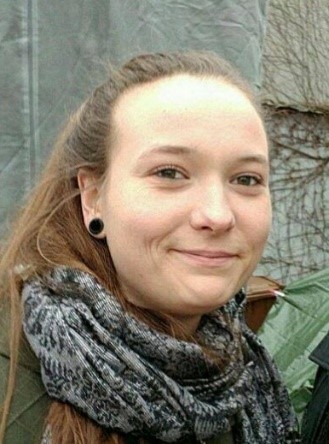Jean-Yves Roignant carried out his thesis in the laboratory of Dr. Jean-Antoine Lepesant at the Jacques Monod Institute and received his Ph.D. in 2003 from the University of Paris Diderot. He became postdoctoral fellow and research associate in the group of Dr. Jessica Treisman at New York University Langone Medical Center. He then started his independent group in 2012 at the Institute of Molecular Biology in Mainz and joined the Center for Integrative Genomics in August 2019 where he was appointed Associate Professor. He has a long-standing interest in the regulatory mechanisms of gene expression.
Keywords: RNA modifications, epitranscriptomics, gene expression, animal development, behavior
Research summary
Regulation of gene expression by RNA modifications
A fundamental question in biology is to understand how gene expression is finely regulated in time and space during organismal development and function. While the influence of transcription regulation in these processes has been thoroughly studied the role of post-transcriptional gene regulation has emerged more recently as a critical player. Analog to epigenetic marks on the DNA, cellular RNAs are naturally decorated with a variety of chemical modifications that are often highly conserved and can be dynamically regulated upon environmental changes. Recent advances in sequencing methods and mass spectrometry technologies uncovered the prevalence and importance of some of these modifications in biological function and diseases, resulting in the birth of the epitranscriptomics field. Yet, the biological function of the majority of modified RNA nucleotides and their molecular mechanisms on gene expression still remain to be investigated.
Our research goal strives to unveil the epitranscriptome. To tackle this fundamental question we use Drosophila as a powerful model organism to study animal development, behavior, and human genetic diseases and conditions. We combined genetic approaches with state of the art molecular biology, biochemistry, microscopy, high throughput techniques and computational tools. Our research focuses on three main axes:

- Identification and mapping RNA modifications
- Elucidation of their biological and molecular functions
- Deciphering their evolutionary strategies and roles in diseases
For Masters, PhD and Postdoc position inquiries please write directly to
Representative publications
- Bawankar P, Lence T, Paolantoni C, Haussmann IU, Kazlauskiene M, Jacob D, Heidelberger JB, Richter FM, Nallasivan MP, Morin V, Kreim N, Beli P, Helm M, Jinek M, Soller# M, Roignant# JY (2021). Hakai is required for stabilization of core components of the m 6 A mRNA methylation machinery. Nature Commun, 18;12(1):3778
- Worpenberg L, Paolantoni C, Longhi S, Mulorz MM, Lence T, Wessels HH, Dassi E, Aiello G, Sutandy FXR, Scheibe M, Edupuganti RR, Busch A, Möckel MM, Vermeulen M, Butter F, König J, Notarangelo M, Ohler U, Dieterich C, Quattrone# A, Soldano# A, Roignant# JY (2021). Ythdf is a N6-methyladenosine reader that modulates Fmr1 target mRNA selection and restricts axonal growth in Drosophila. EMBO J, 40:e104975
- Akhtar J, Kreim N, Marini F, Mohana GK, Binder H and Roignant JY (2019). Promoter-proximal pausing mediated by the exon junction regulates splicing. Nature Commun, 10:521
- Knuckles* P, Lence* T, Haussman I, Jacob D, Kreim N, Carl SH, Masiello I, Hares T, Villasenor R, Hess D, Andrade-Navarro MA, Biggiogera M, Helm M, Soller M, Bühler# M and Roignant# JY (2018). Zc3h13/Flacc is required for adenosine methylation by bridging the mRNA binding factor Rbm15/Spenito to Wtap/Fl(2)d. Genes & Dev, 32:415-429
- Lence T, Akhtar J, Bayer M, Schmid K, Spindler L, Ho CH, Kreim N, Andrade-Navarro MA, Poeck B, Helm M, Roignant JY (2016). m6A controls neurogenesis and sex determination in Drosophila via its nuclear reader protein YT521-B. Nature, 540:242-247
Alumni
 |
Lina Worpenberg - PhD Student Lina obtained her Bachelor in Biochemistry from the Free University Berlin in 2014. During her degree, she joined for one semester the lab of Ville Hietakangas at the University of Helsinki to perform a systematic genetic analysis of genes involved in sugar metabolism of Drosophila melanogaster, and for her bachelor thesis, the Hamann lab at the DRFZ to identify immunoregulatory substances by using HT-Flowcytometry and expression analysis of cytocines. She continued with the Master studies in October 2014 at the Free University in Berlin, where she was working in the Pflueger lab to investigate the functional neuroanatomy and immunhistochemistry of the thoracal ganglia of insects, and, the Sigrist lab to perform systematic analysis of the function and location of Unc-13 isoforms at the neuromuscular junction. In 2015, she worked for a few months in the Ladant lab at the Pasteur Institute in Paris to help identifying the activator of Pseudomonas aeruginosa ExoY nucleotidyl cyclase and related ExoY-like effector domains from MARTX toxins. Afterwards, she joined the Grabowski lab at the Charite Berlin for the functional analysis and interactions of FoxM1 and Stat3 in gastroenteropancreatic neuroendocrine tumors. She joined our group in April 2016, first as a Master student and from 2017 on as a PhD student to investigate the m6A pathway in Drosophila melanogaster. She graduated in October 2022. |
 |
Michael Stock - PhD Student Michael obtained his Bachelor’s degree in Biology from University of Bayreuth in 2016, where he studied the effect of CapD2 mutations on the development of the larval brain of Drosophila under the supervision of Prof. Dr. Stefan Heidmann. He continued his studies to obtain his Masters in Biochemistry and Molecular Biology in 2018 during which he joined our group as a master student. He pursued his work as a PhD student since June 2018 focusing on the role of pseudouridine modification in Drosophila melanogaster. |
 |
Chiara Paolantoni - PhD Student Chiara obtained her Bachelor's degree in Biology from the Sapienza University of Rome in 2014, where she studied the regulation of Neurexin1 expression during neuronal differentiation. In 2016, she obtained her Master's degree in Neurobiology from the Sapienza University of Rome. During her degree, she worked in the lab of Dr. Corinna Giorgi at the European Brain Research Institute of Rome, studying how BDNF modulates the translation of dendritic Arc mRNA. Afterwards, she spent one semester investigating the role of Kif2a and Cep170 in microtubule organization in the lab of Dr. Jens Lüders at the Institute for Research in Biomedicine (IRB) of Barcelona, thanks to an Erasmus+ fellowship. In October 2017, she started her PhD in our group, initially at the Institute of Molecular Biology (IMB) in Mainz and then at the CIG. She was awarded a 2-year PhD fellowship from the Boehringer Ingelheim Fonds to study the molecular mechanisms of the m6A mRNA modification in Drosophila. |
 |
Mariangela Spagnuolo - PhD Student Mariangela obtained her Bachelor and Master degrees in Molecular and Cellular Biology from the University of Siena in Italy. During her degrees she worked at the University of Cambridge in Dr Olivia Casanueva’s and Dr Patrick Varga-Weisz’s laboratories, where she investigated the role of epigenetic modifications in the context of aging in C. elegans and of intestinal homeostasis in mice, respectively. She then moved to Mainz in Germany where she joined our group in 2018 to study the impact of RNA modifications on RNA metabolism in Drosophila melanogaster. |
 |
Athéna Sklias - Post-doctoral fellow Athena obtained a bachelor in Biochemistry and Molecular Biology at the University of Strasbourg followed by a Master in Plant Production Management with a specialisation in Environmental Toxicology during which she studied the effect of pesticides on cell models and honeybees. To broaden her knowledge in bioinformatics, she obtained a Master’s degree in high-throughput technologies. She pursued into a PhD to study the estrogenic regulation in breast cancer at an epigenome-wide level in the group of Epigenetics at the International Agency for Research on Cancer (WHO) in Lyon, France. She joined our lab in January 2020 to explore the role of RNA modifications upon environmental changes and the regulation of non-coding RNAs. |
Our research is in the news, check it out!
D’un cerveau à l’autre : le diable est dans le méthyle! (http://insb.cnrs.fr/fr/cnrsinfo/dun-cerveau-lautre-le-diable-est-dans-le-methyle)
RNA modification important for brain function (https://www.sciencedaily.com/releases/2016/12/161208125812.htm)
Reading Sex-lethal (https://www.nature.com/articles/nchembio.2291)

